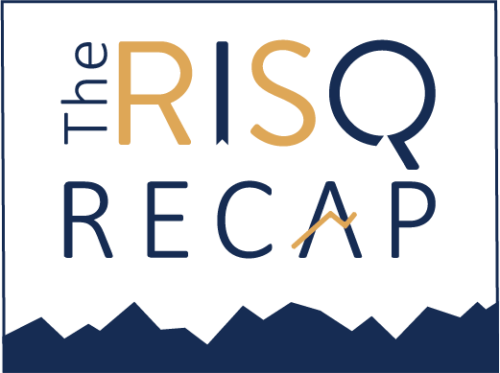
April 11th – April 15th, 2022
Each week, you’ll find specially curated news articles to keep you up to date on the ever-evolving world of insurance and risk management. The articles are divided out between items relevant to Property & Casualty, Employee Benefits/Human Resources, and Compliance. We’ve included brief summaries of each item as well as a link to the original articles.

PROPERTY & CASUALTY
Cyber Premiums Rapidly Grew 74% in 2021: Fitch
“According to estimates by Fitch Ratings, direct written premiums (DWP) for standalone and packaged cyber insurance increased 74% to nearly $5 billion in 2021 compared with overall growth for the property casualty industry of 9%, making cyber insurance the fastest growing product segment in the U.S. P/C market.” Full Article
– Insurance Journal

EMPLOYEE BENEFITS, HUMAN RESOURCES, & COMPLIANCE
Do Employers Now Have to Offer Affordable Family Coverage “Although not directly affecting employer-sponsored plans, employers may experience indirect effects of the changes if the proposed rule is finalized. For example, in order for the IRS to make Premium Tax Credit determinations involving family coverage, they may require further information reporting from employers. The IRS Forms 1094 and 1095 might be modified to require separate affordability reporting regarding both employee-only coverage and other coverage offers.” Full Article – Jackson Lewis P.C.
Ninth Circuit Reverses Decision Requiring Reprocessing of 67,000 Behavioral Health Claims; Hands United Healthcare a Win “The Ninth Circuit decision means that UBH no longer has to reprocess the tens of thousands of claims. UBH was still adjusting its criteria and guidelines at the time of the Ninth Circuit’s decision. It is not clear whether UBS will now ‘walk back’ its revised criteria. This decision signifies great latitude for plan administrators and seems to mark a deviation from an otherwise broad national movement toward enforcement of mental health parity laws.” Full Article – ArentFox Schiff LLP
Employer’s Failure to Provide Timely COBRA Election Notice Results in Retroactive Coverage and Penalties “Buford argued that his former employer prevented him from exercising his COBRA rights by providing him with a COBRA election notice with an incorrect termination date of February 28, 2014, and then disregarding that date for COBRA coverage. The court sided with Buford, finding that General Motors’ failure to correct his COBRA eligibility date was arbitrary and capricious.” Full Article – Hall Benefits Law
It’s So Easy to … Put Your Employees’ HSAs at Risk “In addition to telehealth, there are other incentives or special benefits that employers may be tempted to offer, especially to encourage retention during this era of labor shortage. Be careful, though, that your generosity doesn’t compromise your employees’ HSAs by relieving them of their obligation to bear the full weight of their HDHP coverage.” Full Article – Holland & Hart LLP
HHS OCR Issues Annual HIPAA Reports to Congress “OCR’s breach report contains useful information regarding the most commonly reported categories of breaches and OCR’s recommendations on best practices to avoid such breaches. OCR reported that 68% of the ‘500+’ breaches in 2020 involved ‘hacking/IT incidents of electronic equipment or a network server’ while 23% involved ‘unauthorized access or disclosure of records containing PHI.’ OCR’s enforcement report also provides statistics and information that can be useful to covered entities in focusing their compliance efforts.” Full Article – Health Law Advisor, Epstein Becker Green
CMS Announces 2023 Medicare Part D Benefit Parameters Used for Creditable Coverage Disclosures “These parameters will be used by group health plan sponsors to determine whether their plans’ prescription drug coverage is creditable for 2023. The information is needed for required disclosures to Part D eligible individuals and to CMS.” Full Article – Thomson Reuters / EBIA

STATE & INTERNATIONAL COMPLIANCE
In addition to the RISQ Review, RISQ Consulting also provides a resource that features changes and updates to State and International Compliance measures. We’ve included brief summaries of each item below, and also provided links to the original articles if you’d like to read further.
Washington
New Washington Law Bans Nondisclosure and Nondisparagement Provisions and Applies Retroactively
“Governor Bill Lee has signed into law a bill that expands protections for employees who are subject to employer COVID-19 vaccine mandates. The new law supplements existing state law that prohibits private employers and other entities from compelling or taking “adverse action” against a person to compel the person to provide proof of vaccination.” Full Article
– Nelson Mullins
California
Updated California Supplemental Paid Sick Leave FAQs Answer Some Big Questions
“California’s Labor Commissioner has updated its FAQs concerning 2022 COVID-19 supplemental paid sick leave (CPSL), answering some of employers’ more pressing questions about how this year’s more unique law operates. The answers are welcome news to many.” Full Article
– Littler Mendelson
Oregon
Oregon Amends the Workplace Fairness Act to Further Restrict Agreements Resolving Discrimination Claims
“On March 24, 2022, Oregon Governor Kate Brown signed into law Senate Bill 1586, which amends Oregon’s Workplace Fairness Act to further restrict what an employer may request in a settlement or separation agreement with an employee claiming discrimination under ORS 659A.030, 659A.082, or 659A.112. The amendments will be effective January 1, 2023.” Full Article
– Davis Wright Tremaine
Utah
Utah Amends Vaccination and Testing Requirements to Include Exemption for Previous COVID-19 Infection
“On March 22, 2022, Utah Governor Spencer J. Cox signed HB 63 into law, amending legislation passed in the Utah Legislature’s second special session of 2021 related to vaccine mandates in the workplace. The law will become effective on May 3, 2022 (60 days from adjournment of the 2022 legislative session).” Full Article
– Littler Mendelson
Indiana
Indiana Enacts New Law on Employer COVID-19 Vaccination Mandates
“Indiana Governor Eric Holcomb has signed into law House Bill 1001, curbing COVID-19 vaccine mandates by employers. Under the law, which went into effect immediately, most Indiana employers who require employees to receive the COVID-19 vaccine must allow employees to opt out from the requirement based on any of the following: (1) medical reasons; (2) religious reasons; or (3) employee immunity from COVID-19 based on a prior infection with COVID-19.” Full Article
– Jackson Lewis





 Subscribe to the RISQ Recap, a weekly post to help you stay up to date on news articles and resources for your organization’s compliance needs.
Subscribe to the RISQ Recap, a weekly post to help you stay up to date on news articles and resources for your organization’s compliance needs.